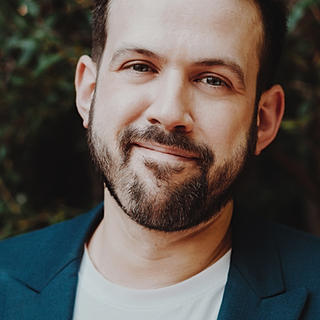The Phallusy of Jordan Peterson
- David Murphy
- Apr 23, 2018
- 3 min read

Many in Australia and around the world have lauded the Canadian academic Jordan B. Peterson, whose refusal to use chosen pronouns has provoked a wider debate about freedom of speech. As a psychologist and public figure, he lends respectability to a painful debate about rights which has precedent in the gay community; an argument which was resolved through the extension of protections under the law.
What Peterson has said in respect of refusing to use chosen pronouns - a subject so top-of-mind for those who debate cultural issues - has been presented as an issue of free speech, rather than an issue of minority rights. The rights of transgender people are sometimes unclear, particularly with respect to single-gender environments. The lack of clarity over rights leaves transgender people, particularly those who don’t “pass” as their gender, vulnerable to attack.
LGBTQIA+ activists have argued for legal positivism, and for community leaders to set an example of tolerance, rather than indulge a subjective and flawed debate about reasonable changes to the law. They have argued against using transgender people as a talking point in a culture war, or in career-boosting attacks on a flimsy justification. It is through proper interrogation of the issues that we act in defence of freedom of speech. In a different regulatory framework, Peterson’s right to free speech would ideally be honoured in debunking his attempt to link his personal intransigence to that broader issue.
Peterson has appeared on American and international news broadcasts, interviews, comedy shows and in clips online, a space which also struggles with thoughtful analysis. These interviews and appearances afford him positive exposure as they are often not editoralised to reveal the context for his arguments. His use of ‘truisms’ have an appealing prima facie logic but fail to acknowledge that he’s taking aim at the vulnerable. He is a gifted speaker who retains his respectability by touting his credentials and diverting the issue to one of free speech, which is presented as an unassailable right. Using this device he closes down any reframing of the issue to one of rights, but he is engaged in a fallacy.
A healthy attitude to freedom of speech is well expressed by existence of lively debate in mass media, with protected and publicly-supported funding streams supporting a diversity of outlets and views. For example, the Norwegians have a model to ensure a plurality of views through the work a Commission on Media Diversity and public funding to ensure range of opinion is properly represented in that city or region. But such a model would represent deep changes to the political economy and regulation of the mass media; reforms of which are not under discussion.
So instead we argue about the media space we have and who gets to give their message. We argue over whether there is any critical representation of that issue, which there often is not. And we argue amongst ourselves, along parochial lines, lacking the analysis we require from people whose job it is to curate and examine the issues worthy of our attention as a public.
Peterson’s concept of “free speech” is inductive; it is free speech for him. He is a mischievous provocateur; amusing, plausible and sometimes he has a point. He is receiving plaudits from the privileged to whom he presents this issue as a derogation to their rights; inflicted by an amorphous, oversensitive left. But his responsibility as an intellectual is not discharged by decontextualising his arguments; drawing false equivalence between those with particular challenges and those without, and describing a zero-sum game for societies extending rights to minorities.
In any case, to feel persecuted by an extension of the rights of the minority and to conflate that process with a derogation of rights reveals more about Peterson’s particular cultural biases than, say, a peer-reviewed study on the issue he is allegedly grappling with. As Oscar Wilde said, “morality is simply the attitude we adopt to people we personally dislike." In this way, he resembles his adversaries.
Peterson is a performer; the crowd is laughing and clapping along, while his false epiphanies highlight the structural problems at the heart of our public discourse. The extent of freedom of speech can be measured by freedom from persecution or censure by the state, not as the right to identify someone as something they are not.

















Comments